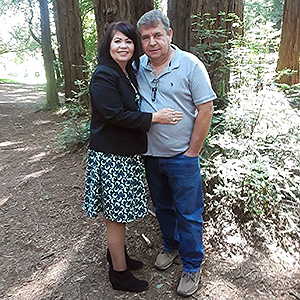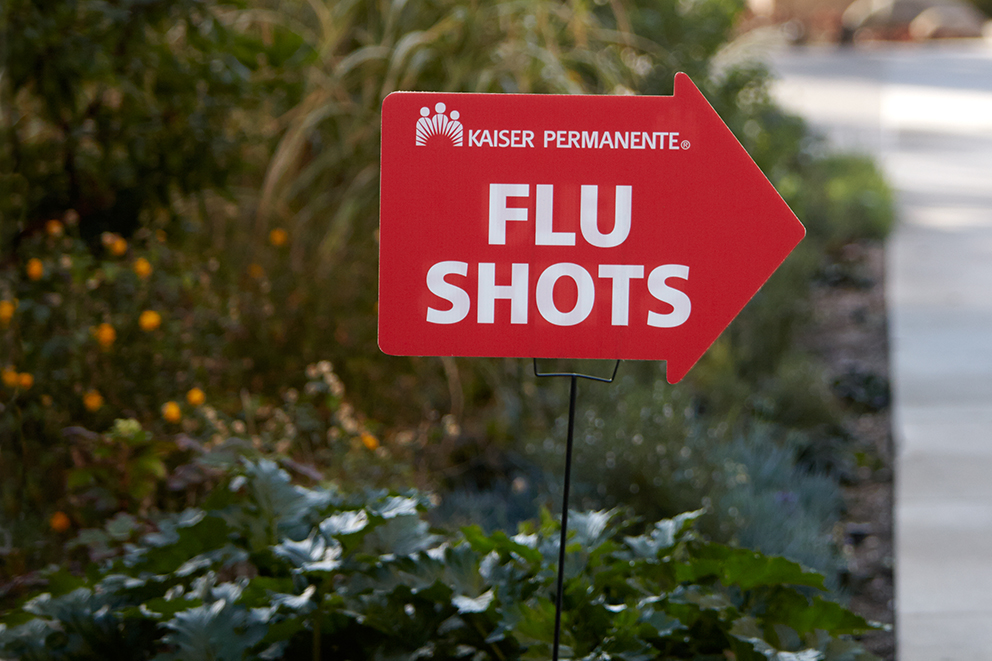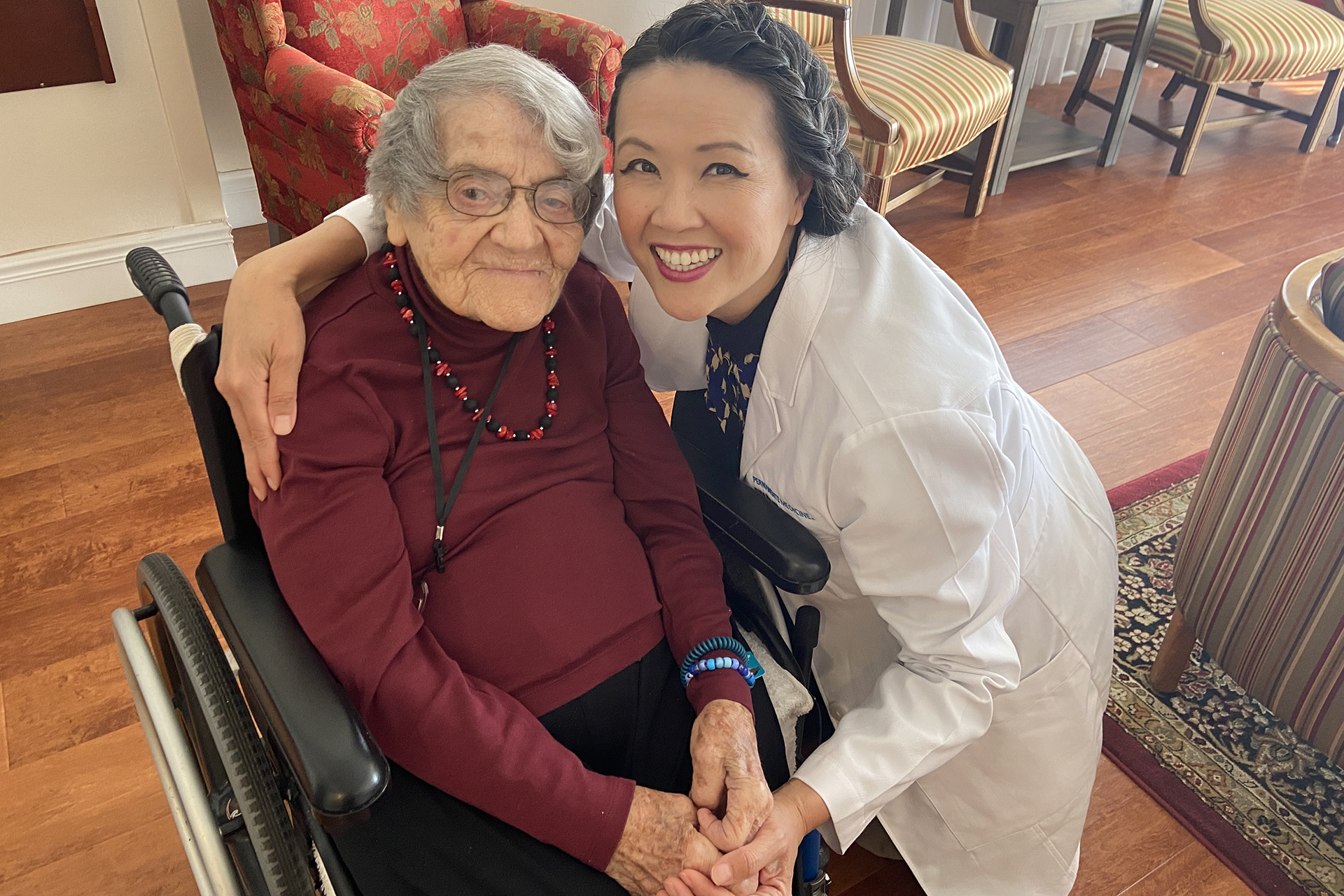Don’t chance it: Get your flu shot. Pictured, Maria Teresa and Cesar Da Cruz. Cesar had the flu last season — and as a result said he’ll never skip his vaccination again.
Cesar Da Cruz decided to skip his flu shot last year. But what started as a few sneezes, a mild cough, and fever turned into the full-blown flu, according to his wife, Maria Teresa, a 15-year medical assistant at the Kaiser Permanente Vallejo Medical Center.
Cesar, 66, didn’t want to go to the doctor; he was afraid to miss work as the owner of his own painting company. So Maria Teresa put him to bed and pushed the fluids — and worried.
“He stayed home for a week, becoming weaker and weaker,” she said. “A friend finally needed to take him to our primary care physician — who admitted Cesar immediately to the Emergency Department.”
Cesar spent 5 days in the hospital, according to Maria Teresa, who added, “The ER doctor told him that if he had waited one more minute to come to the hospital, he would have died.”
Another Complex Flu Season
This flu season has hit early and hard, according to Randy Bergen, MD, a Kaiser Permanente Walnut Creek pediatrician and the clinical lead for the Kaiser Permanente flu vaccine program in Northern California.
“The first wave was influenza B and that was a strain that primarily affected schoolchildren ages 5 to 18. It didn’t affect adults as much. Now influenza B is trending down, while influenza A has been trending up since the holidays.”
There are two strains of influenza A, Dr. Bergen said. The one affecting largely adults now is H1N1. “If we only have this one strain of influenza A this year, the flu season should be its typical 8-week cycle, tapering off in February.”
However, if the second strain called H3N2 emerges, it could mean a flu season that would go into March.
That’s what happened last year, prompting the Centers for Disease Control and Prevention to term it the longest flu season in a decade.

It’s Not Too Late to Vaccinate
Since it’s hard to predict whether H3N2 will arise, it’s better safe than sorry when it comes to flu vaccination.
“Getting vaccinated now may not protect you against the first wave of influenza B,” Dr. Bergen explained. “But it could arm you against the influenza A still happening, and most certainly would help fight off that potential third wave of H3N2, if it does arrive.”
In summary: While it’s always best to get the flu vaccination in October or November, it is still not too late to get some protection.
Kaiser Permanente members can call the Kaiser Permanente Flu Shot Clinic Information Line at 800-KP-FLU-11 to find out when and where they can get the vaccine.
“Anyone who wants a flu vaccination can get it,” Dr. Bergen said. “We have plenty of supplies of it for this winter and into spring.”
One person who got his own shot early this season is Cesar Da Cruz, who recovered from last year’s flu scare and is back to running his business — as well as becoming an advocate for the flu vaccine, said Maria Teresa.
“We never want to go through that again.”
Kaiser Permanente members: Call the Flu Shot Clinic Information Line at 800-KP-FLU-11 to learn where you can get your own flu vaccination.





This Post Has One Comment
I got my flu shot and the gentleman who provides my transportation got one too although he is not a Kaiser member. Thanks for that perk.